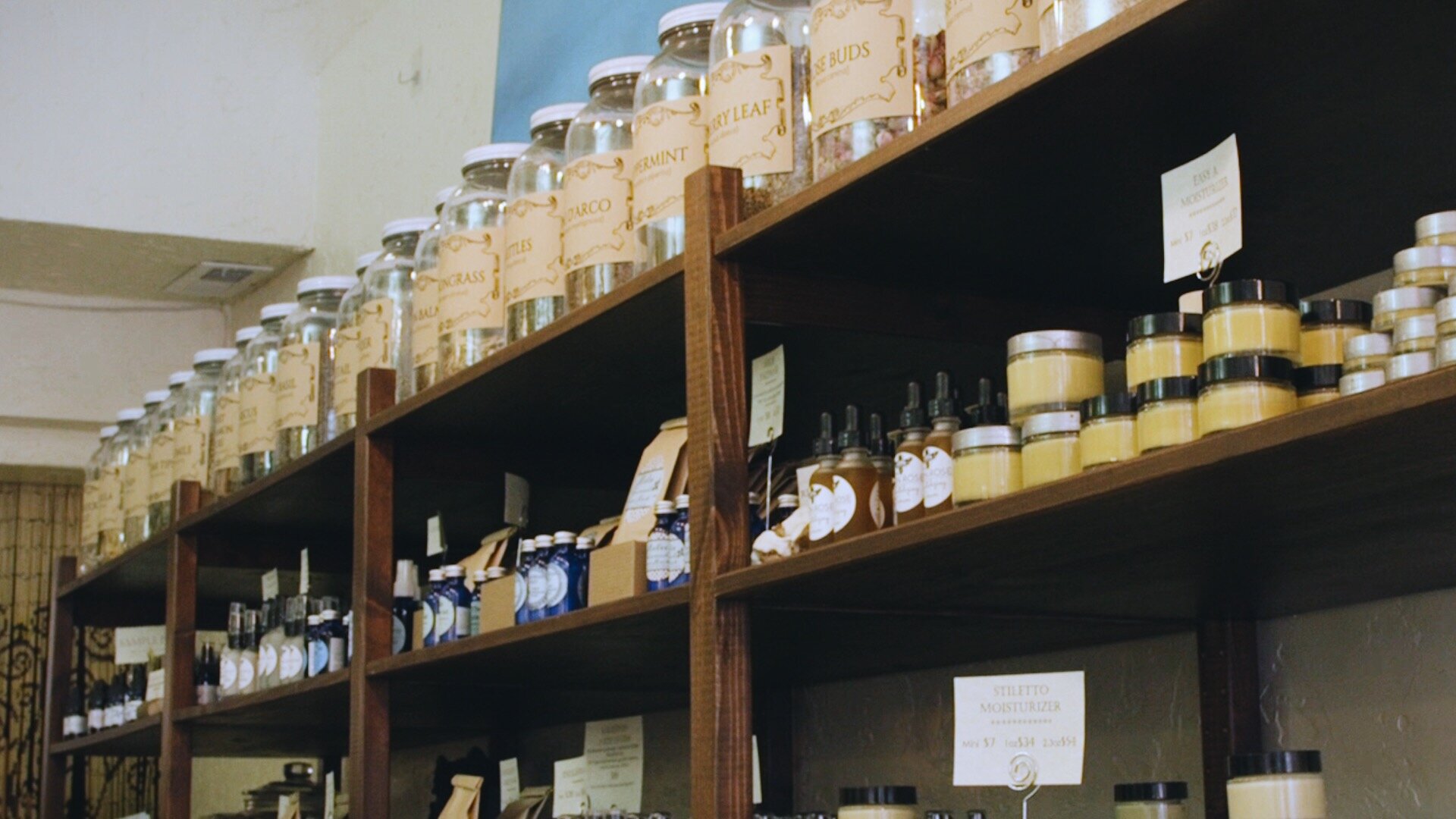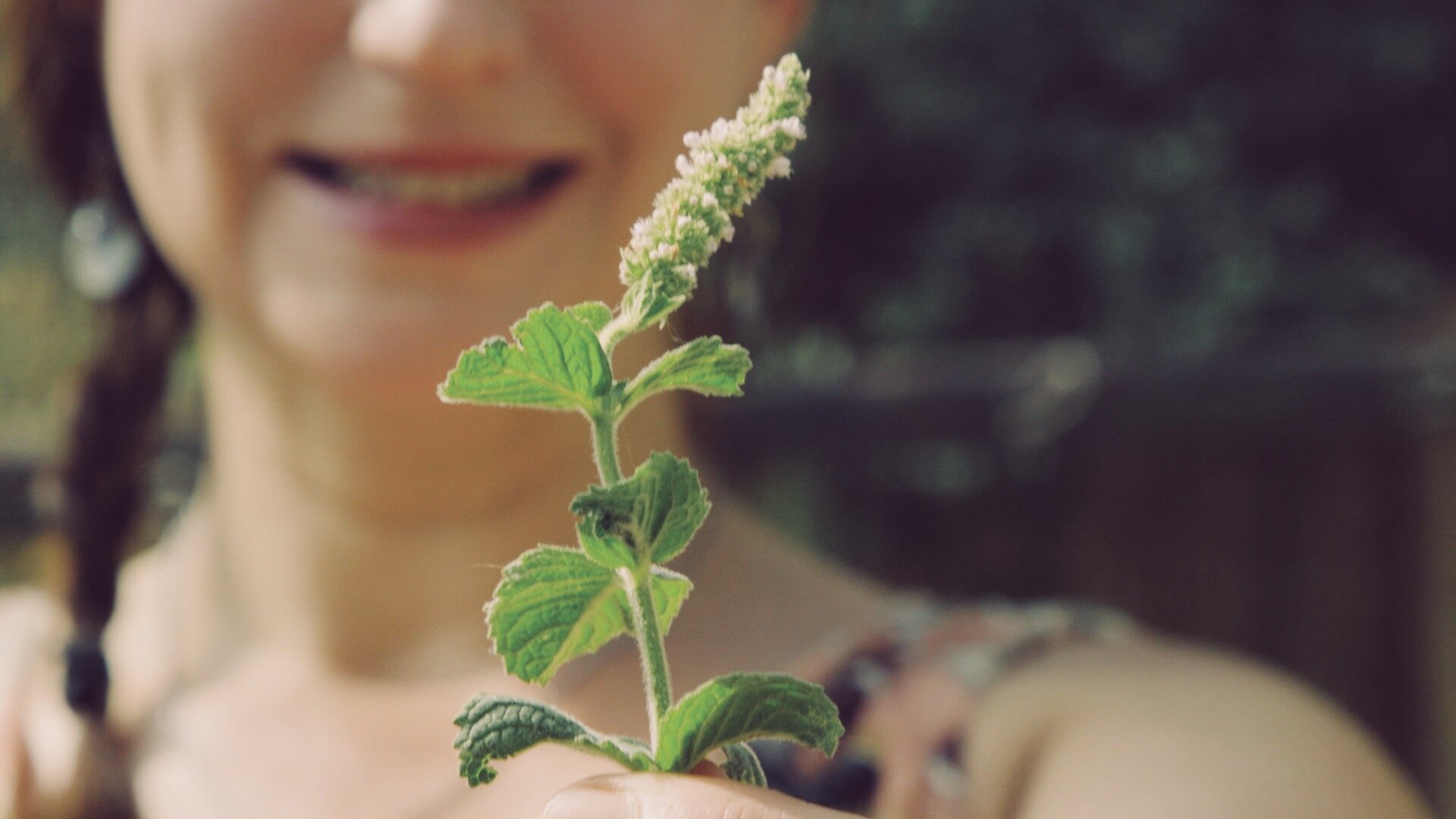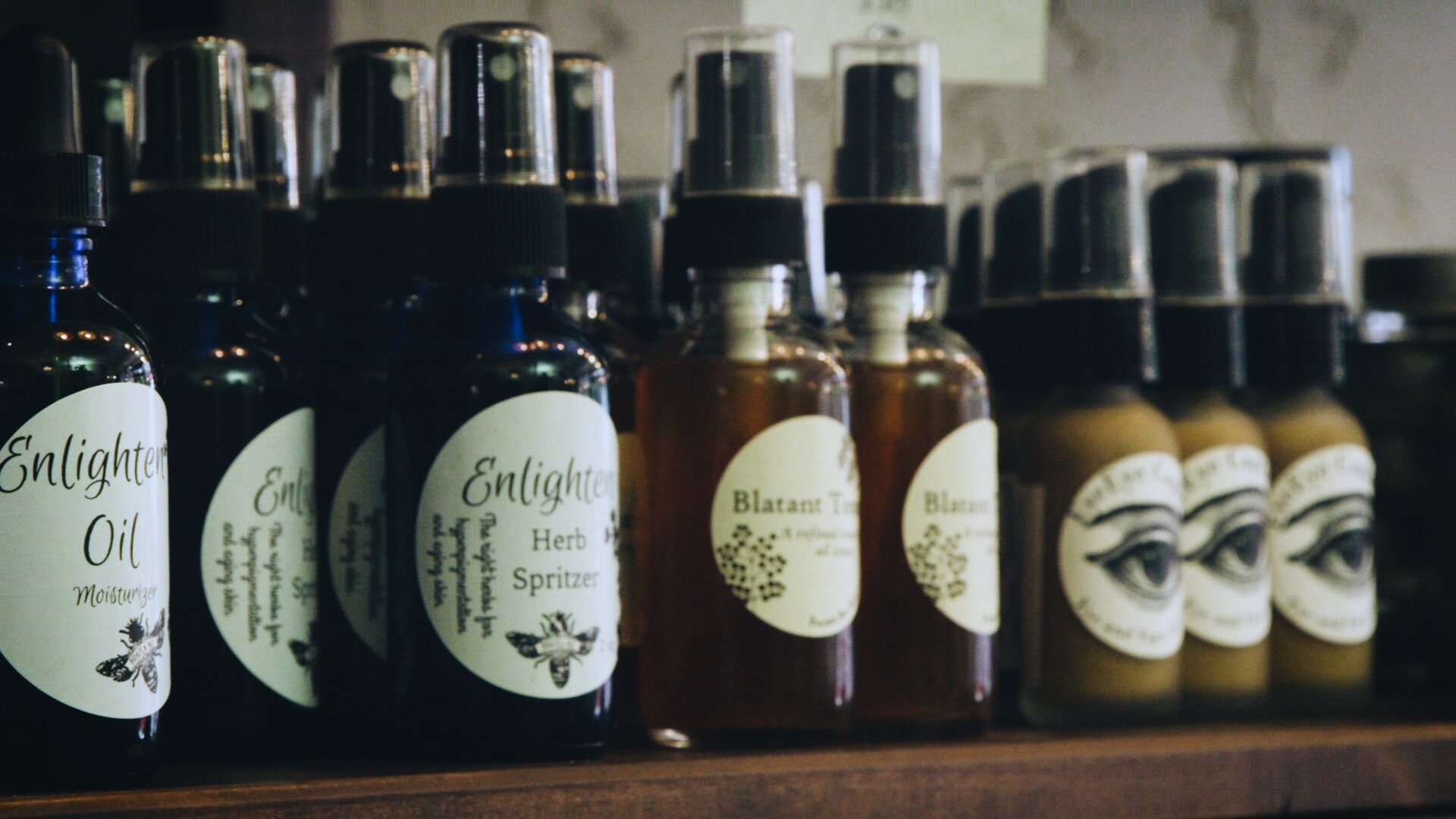A Colorado business that was meant to 'bee'

MANITOU SPRINGS, Colo. — The town of Manitou Springs was founded in the late 1800s as a tourist’s gateway to the scenic wonder of Rocky Mountain formations; a respite with an abundance of bubbly mineral spring waters boasting healing properties.
So it only makes sense as the home base of Brazen Bee, the natural skin care apothecary and essential oils shop from nutritionist and herbalist Courtney Henslee. At Brazen Bee, Henslee and her staff hand craft chemical-free, whole-plant formulas for skin, hair, and body. Face wash, lip balm, spritzers, elixirs, tea blends and more are custom-created with individual customers’ concerns in mind.
“My secret modus operandi is to get dirt and plants onto people’s bodies,” Henslee laughed. “It’s in packaging that reflects the beauty standard of care. But secretly, it’s just a back-to-the-earth mentality.”
It’s not so much of a secret anymore. Henslee supports a national clientele online in addition to her Ruxton Avenue storefront.
It was simply meant to "bee."
Nine years ago, on her first trip to Colorado to visit her sister, Henslee cried when she saw the mountains. “I was so star-struck,” she remembers. “Colorado was like a literal rock star to me.”
She knew almost instantly she had found her home. She returned to Texas, but only temporarily.
“To get the money to move here, I sold all my antiques,” Henslee said. “I sold my favorite cowboy boots. I sold everything.”
In her effort to raise funds, Henslee also sold something else — a “weird, green, powdered face wash that I had been giving away to my friends for months.” They been offering to buy it from her. Now, she had a reason to sell.
Henslee made $2,000 in two weeks. “To me, that was just, wow,” she said. “I was a college student living on student loans with three kids. I thought, ‘Well, that was fun.’”
And the calling did not stop there. A few weeks later, after arriving in Manitou Springs, the emails started pouring in.
“People had run out of my face wash. They wanted more. Could I ship? And also, could I make lotion? What about face cream?” Henslee recalled. “The requests were piling up. And I was like, ‘This is it.’”

Her passion fit the opportunity like a glove. A business operating out of her home kitchen would no longer do. Henslee soon expanded to a Manitou Springs store front — then, a succession of larger spaces, as each outgrew the last.
Henslee came to create her own natural products throughout her 25 year career as a nutritionist because she simply couldn’t find anything that worked for her.
“I found out at a young age that I had a glycerine allergy, which was weird, and no one could treat it,” Henslee said. “In addition, I have really sensitive skin.”
Dermatologists poked and prodded, but Henslee said not one specialist asked her the simple, million dollar question: What was she putting on her skin?
“In my journey in herbalism and nutrition, I eventually started to really look at what was going on me,” Henslee said. “And it turns out, we’ve really been duped in the world of skin care in so many ways. Marketing is insidious. Unfortunately, we shouldn’t give a lot of credence or trust to advertising or to the words ‘natural’ or ‘organic’ when it comes to topicals. There’s no [federal] regulation or oversight there.”
“I do a lot of product dissection where I go over with clients every single thing that’s in every product they’re using,” Henslee said. “In this way I have found an immeasurable amount of success in treating skin care issues that have kind of gone by the wayside in the dermatological community.”
The average American, Henslee said, uses upwards 15 different products on their body on any given day.
“The FDA has determined that a certain amount of chemicals is allowable,” Henslee said. “But then you put them in a soup, and multiply them all, and put them on multiple times a day. And that one chemical that’s allowable, is actually in ten of your products. Suddenly, you’ve magnified your usage far beyond what perhaps the legal statue would be. And unfortunately, the legal statues in American are almost none to begin with.”
By contrast, European regulations, Henslee said, outlaw dozens of chemicals the United States has found allowable. “Some chemicals that are illegal in the EU, we have no limits on whatsoever,” she said. “There is no protection. And skin issues in the United States are skyrocketing. I’m very concerned.”
Henslee said she has been overwhelmed by the sometimes dramatic results of using plant-based treatments. “I wasn’t expecting that when I started,” she said. “I was just thinking, ‘At least I’m doing something that I know is safer.’”

Many of Brazen Bee’s clients walk through the door after prescription steroids and scentless soaps prove ineffective.
“I’ve still never had a client come to me and say their dermatologist asked them what they were using on their skin,” Henslee said. “And that blows my mind. It seems like the obvious place to start.”
Henslee educates clients not only about the chemical make-up of their skin care products — but also, the reasons why there are chemicals in what they’re using.
For example, lotion.
“Most lotion, no matter the price range, is mostly water,” Henslee said. “If a product is creamy, water is likely the first ingredient. It’s shocking to a lot of people, and it’s problematic to me. I tell people all the time, ‘I am not here to sell you water.’ The other half of that, is that bacteria grows in water. So if you have water in a formula, you have to have chemical preservatives. There’s simply no way around that.”
Henslee sells common beauty products in concentrate, saving on packaging and eliminating chemical ingredients. For products like powdered face wash, clients can decide how much water to add at home, often sprinkling the product on a wet washcloth.
And some of those expensive, hard-to-pronounce “miracle” ingredients?
“They’re really not,” said myth-buster Henslee. “For example, Alpha-hydroxy acid, you can pay big money for, but it’s derived from sugar. Companies literally extract it out of white sugar. We get it out of unrefined sugar in our products. But you’re not paying an arm and a leg for something that’s on your table every day.”
The beauty industry can be misleading and exploitative, Henslee argues. “We could go on for hours about what’s wrong with what we’re using. And so often, we definitely don’t talk about what’s right. It’s so important because it’s something we have gotten so far away from.”
During the COVID-19 pandemic, Henslee said, more of her clients have returned to a skin care routine, both because they have the time, and because they are looking for a soothing self-care ritual.
“Sales actually went up a little bit at the beginning of COVID,” she said. “People stocked up. And that was great, because it turned out I had problems sourcing things for awhile.”
Henslee is dedicated to sourcing home-grown, local, and free trade ingredients that support indigenous communities. Each month, she said, she has watched another staple ingredient disappear from the market.
“That has been the most stressful thing for me during all of this,” Henslee said. “I wonder, what's going to be out next month? Every time I place an order, there’s a brand new major component to something I make that’s completely unavailable. I watch certain herbs disappear from every company. My cost of goods has gone up dramatically due to a lack of supply in the United States.”
Another shortage, she said, is the containers the products go into.
“Right now, bottles, jars, and lids are really hard to come by,” Henslee explained. “It seems silly, but it’s real. Everyone grew a garden, and now they’re canning. Which is awesome! But the lid makers didn’t think far enough ahead.”
“I’ve definitely noticed since the lockdown that people are trying to find local things, and trying to find natural ways to treat themselves,” said Marisa Cutlip, a Herbalist and Naturalist with Brazen Bee. “And a lot of people have come in with severe anxiety or insomnia.”

Like Henslee, Cutlip finds personal satisfaction in connecting her community with products for self-care.
“This world is a little bit crazy, but if you can find a little bit of comfort to alleviate your stress and really take care of your body, it also helps your mind,” Cutlip said. “I believe if you take care of the body, the spirit will follow.”
Though Henslee said the year has been a “moot point” for her business financially, community support has never been stronger.
“I’ve seen, though COVID, the passion for what I do,” said Henslee, tearing up. “And the support that we’ve gained and kept. People are checking in, making sure we’re not going out of business.”
“It’s a testament to what we do,” she said. “Really, it’s a testament to what the plants do, and to what a real relationship with clients means for them. They know that we care deeply.”
Henslee gestured around the store. “All this happened because I put some oatmeal and salt and spirulina in a blender one day,” she said. “I never expected this. I’m very blessed to be in so many bathrooms!” She laughed. “It’s an incredible thing. A lot of my products are my children, in that they’ve kind of grown up to do things I never knew they could do. But that is the brilliance of plants.”
